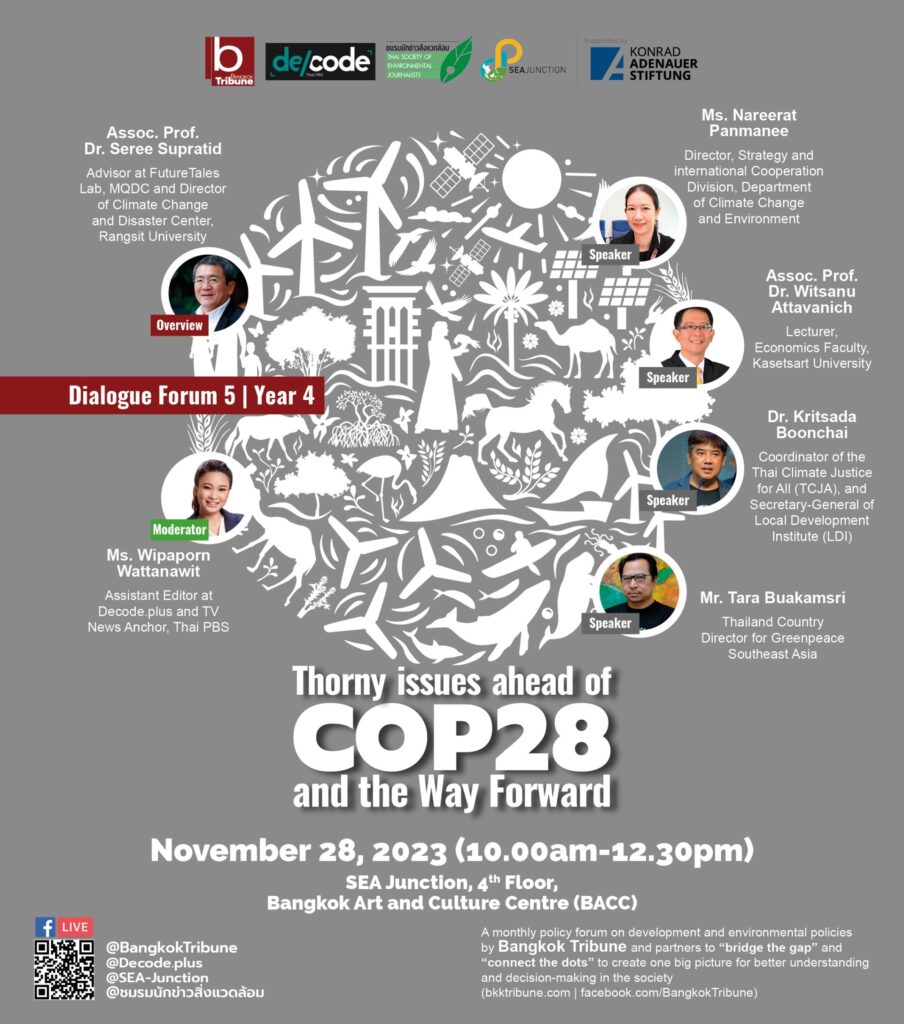A policy forum on development and environmental challenges and policies to “bridge the gap” and “connect the dots” to create one big picture for better understanding and decision-making in the society
Since the world stepped into the first climate mitigation challenging decade of 2030 with COP26 and COP27 held respectively in 2021 and last year in the UK and Egypt, it has been passing a rugged terrain road to reach the goal of keeping the world’s temperature below 2C, and ideally, 1.5C by this century.
To do so, countries need to cut Greenhouse Gas (GHG) emissions at least 45% below 2019 levels by 2030, but as being reported by the World Resources Institute (WRI) on key issues to watch at COP28, the accumulated reduction based on the national plans or NDCs could achieve only a 7% reduction so far. Worse, subsidies for fossil fuels, in contrast, rose to a record US$7 trillion in 2022, according to the WRI.
Although some breakthroughs have been made on other fronts, including the creation of the Global Stocktake, Loss and Damage funding arrangements, increased funding for adaptation and others, these still remain much to be seen whether they will get bogged down or make it through during the next round of the negotiations at COP28 scheduled in Dubai.
The Dialogue Forum has invited the public to explore the challenges ahead of the UN Climate Conference, COP28, scheduled in Dubai, UAE, where thorny issues regarding mitigation, adaptation, climate finance, as well as reparations for loss and damage done by climate change are lying ahead.
Our noted speakers from concerned state agencies, academic institutions, as well as civil society took turn sharing their knowledge and views on the panel and agreed that there is an uphill task to address climate mitigation considering the emissions gap which is still huge and the trend of projected consumption and production of fossil fuels which runs counter the need to cut GHGs.
Adaptation, climate resilience, loss and damage arrangements and increased climate finance may hold the key for the future and fossil fuels need to be phased out ultimately, they remarked.Aside from these challenges, countries including Thailand will also face issues concerning inequity in responsibilities and ignorance while dealing with climate change.
The country now is pushing for a new climate act and adaptation plans, where new hopes are placed among Thai citizens for better mechanisms to deal with climate change and its impacts.
Watch the recording here.

The forum was organised by Bangkok Tribune in collaboration with its partners; Decode. plus, Thai SEJ, and SEA-Junction.

Indie • in-depth online news agency
to “bridge the gap” and “connect the dots” with critical and constructive minds on development and environmental policies in Thailand and the Mekong region; to deliver meaningful messages and create the big picture critical to public understanding and decision-making, thus truly being the public’s critical voice


